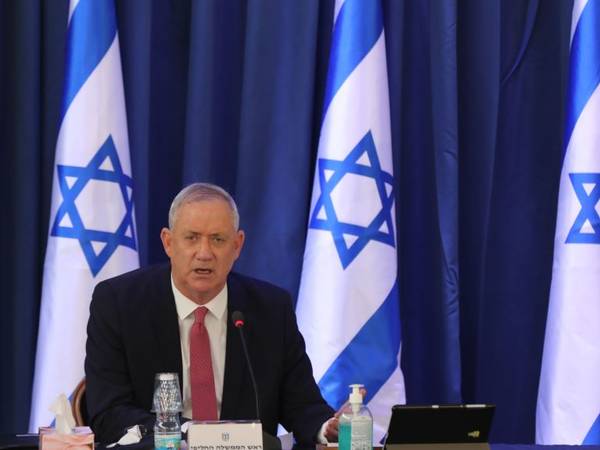Israel's Kan 11 television says defense minister Benny Gantz refused to join a statement, openly opposing the US over delisting of Iran's Revolutionary Guards.
Prime Minister Naftali Bennet and Foreign Minister Yair Lapid issued a statement on Fridaycriticizing what they said was US intentions to remove the Revolutionary Guards (IRGC) from the foreign terrorist organizations blacklist. They appealed to the United States not to delist the top military force of its arch-foe, which it considers as a threat to Israel's existence.
The state-owned Kan 11 on Friday said that Gantz refused to sign the scathing statement.
Gantz spoke with the US Defense Secretary Lloyd Austin hours after the statement issued and thanked the US Senate for approving a $4.8 billion defense aid package for Israel. According to a statement issued by the Defense Minister's office, Gantz and Austin "discussed the details of the emerging nuclear agreement and Israel's position regarding its components."
The delisting of the IRGC appears to be Iran's last condition for signing a deal after nearly a year of intense negotiations to restore the 2015 nuclear agreement, the Joint Comprehensive Plan of Action (JCPOA).
Kan 11 said Israel does not believe that Iran will abide by any commitments it may make in a new deal. Reports have said that US is seeking a guarantee from Tehran to curtail IRGC activities beyond Iran’s borders.
"The attempt to delist the Iran's Revolutionary Guards as a terrorist organization is an insult to the victims,' Israeli Prime Minister Bennett and Foreign Minister Lapid say in a joint statement Friday.
The statement comes after State Department spokesman Ned Price on Wednesday said Washington and Tehran were "close to a possible deal" but "not there yet". "We do think the remaining issues can be bridged," he added.
Under former President Donald Trump in 2019, the United States designated the IRGC as a "foreign terrorist organization" after unilaterally withdrawing from the JCPOA and imposing draconian sanctions on the Islamic Republic.
"Prime Minister Naftali Bennett and his ministers don’t make a habit of squabbling publicly with the Americans, but they have plenty of complaints about flaws in the new agreement, which they believe will leave Israel in a more dangerous position than after the original 2015 nuclear deal," a commentary in Israel's Haaretz on Friday said.
The White House Spokeswoman Jen Psaki said Thursday that there is "ongoing negotiation" over delisting the IRGC. "I’m not going to get into specifics of it.But I would just note that the status quo where we stand has done nothing to make us safer in any regard.In fact, the Islamic Revolutionary Guard has only been strengthened," she said.
Psaki also said the notion that the actions of the past administration pulling out of the Iran nuclear deal has reduced the actions or the escalatory behavior of the Iranian Revolutionary Guard "is inaccurate". "They’ve actually -- the Iranian government has actually doubled their budget or something like that," she added.
Iranian officials have not recently spoken of delisting the IRGC as a condition to signing an imminent deal but on March 9 a member of the parliament's National Security and Foreign Policy Committee, Hossein Noushabadi, said the issue of delisting the IRGC had repeatedly been discussed during the talks in Vienna with "promising results".
